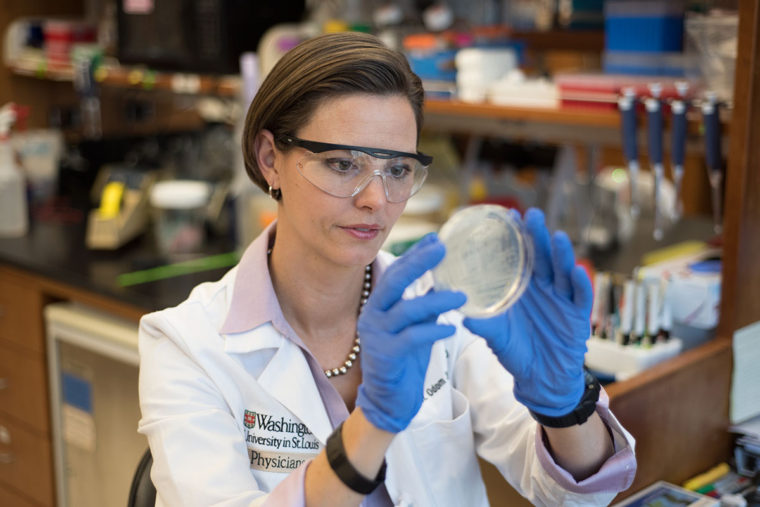Audrey R. Odom John is the mother to a boy, a girl and, over the years, hundreds of baby malaria parasites.
Scientifically named Plasmodium falciparum, malaria parasites in their infancy “need to be fed regularly, just like human babies,” said Odom John, MD, PhD, a highly regarded malaria researcher at Washington University School of Medicine in St. Louis. “But unlike people, baby malaria parasites like fresh blood. They’re little vampires. They can be high-maintenance.”
They also can be deadly. Transmitted by mosquitoes, malaria affects 214 million people worldwide — mostly younger children in sub-Saharan Africa — and causes 438,000 deaths annually, according to the World Health Organization.
“The good news is that malaria is preventable and curable,” said Odom John, an associate professor of pediatrics and of molecular microbiology who has received dozens of awards and honors for her research on the devastating parasitic disease. “This is my focus.”
Odom John runs a nine-member research lab in the Division of Infectious Diseases. The researchers hope to develop new diagnostic tests for malaria detection as well as antimalarial drugs.
Read the full profile on the School of Medicine site.
